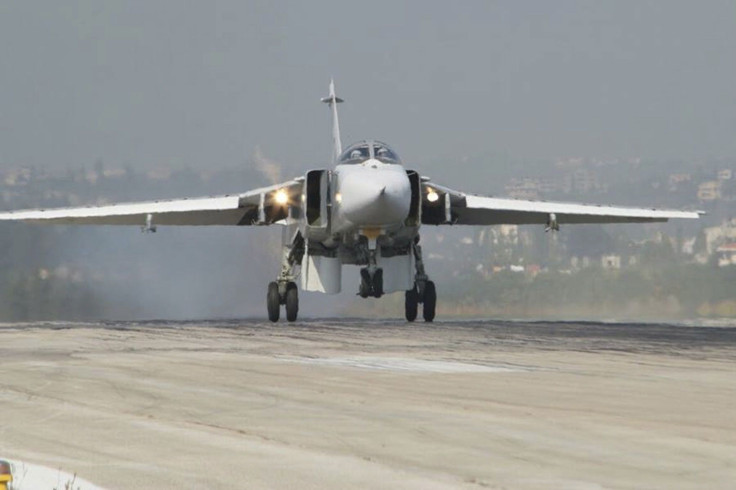Turkey-Russia Relations Explained: Shooting Down Of Russian Fighter Jet Underscores Simmering Tensions Over Syria

Tensions were already high before two Turkish fighter jets began tailing a Russian warplane Tuesday, purportedly issuing repeated warnings that its pilots were violating Turkey's airspace. Turkey shot the plane down, unleashing a diplomatic battle with Russia. Russia’s defense ministry has countered Turkey's allegations that its Su-24 jet was over Turkey, and instead insists it was near the border within Syria. Its pilots apparently managed to eject in a rebel-held area of Latakia province, and there are unconfirmed reports that both could be dead, according to the Guardian.
The debacle underscores rising hostilities between Ankara and Moscow, as the two countries -- despite being strong trade partners -- have not seen eye to eye over Syria.
Russian jet shot down by Turkey. Two pilots captured. What's Turkey doing in Syria? https://t.co/dUaM4eW1Ml pic.twitter.com/HFE49UWVbK
— WikiLeaks (@wikileaks) November 24, 2015
Russia's involvement in Syria started off on the wrong foot, from Turkey's perspective. Russian President Vladimir Putin announced in late September that his country’s military would intervene in Syria just a month after the Turkish president, Recep Tayyip Erdogan, made an official visit to the country. Erdogan undoubtedly saw that as a swipe against their relations and immediately issued harsh words about Moscow’s interference in Syria.
While Turkish leaders have come out as some of the strongest critics of embattled Syrian dictator Bashar Assad, Russia’s military stepped into Syria with the hope of bolstering him. Russian jets have bombed areas held by rebel groups, including many that are backed by Turkey and the West.
#BREAKING Turkey has duty to act against anyone violating its borders: PM
— Agence France-Presse (@AFP) November 24, 2015Relations between the countries have spiraled downhill. In early October, Turkey’s leaders raised concerns over Russian jets that apparently violated Turkey’s airspace twice. The incidents led to heated exchanges between Ankara and Moscow. Russia said that an SU-30 warplane entered Turkish airspace by accident, and due to bad weather and a navigational error. Erdogan dismissed the explanation and said that Russia risked tarnishing the countries’ relations.
Turkey said the Russian jet was in Turkish airspace and was warned. Moscow said it was in Syrian airspace. Now what? pic.twitter.com/6dNXP21JKo
— Kareem C (@kareemvots) November 24, 2015
Turkey and Russia have a long history of clashing, but in recent years the two countries have grown into strong economic partners. Russia is Turkey’s No. 2 trading partner. Trade has increased to more than $32.7 billion annually, according to the Russian government, and a deal was signed for Russia to help build a $20 billion nuclear plant in Turkey.
It’s not clear how much Turkey can do in response to the purported violation of its airspace. Turkey’s relationship with Russia has been viewed more as a case of dependence than interdependence, CNN reported this year.
Adding fuel to the fire, however, is the fact that Russia has expressed interest in strengthening Kurdish forces in Syria. Turkey sees Kurdish militias -- who are viewed as allies to the U.S. -- as a potential threat to its own stability. Turkey worries that a quasi-Kurdish state in Syria could embolden the hopes of Kurdish separatist groups within its own borders. Turkey has been battling with Kurdish militants in its southeast region since a generations-long conflict was reignited over the summer.
#BREAKINGNEWS
#Turkey calls for consultation with @NATO after suspected #Russian jet shot down over northern #Syria.
#PutinAtWar
— Julian Röpcke (@JulianRoepcke) November 24, 2015
Erdogan is known for his confrontational demeanor and fiery speech, and the leaders of both Turkey and Russia are likely to exchange harsh words. Whether it turns into more than a war of words remains to be seen. NATO has announced that it will hold an emergency meeting in Brussels to discuss the downing of the Russian jet.
© Copyright IBTimes 2025. All rights reserved.






















